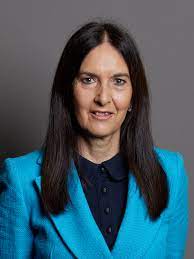Margaret Ferrier – 2022 Parliamentary Question on Improving Survival Rates from Sudden Cardiac Arrest
The parliamentary question asked by Margaret Ferrier, the Independent MP for Rutherglen and Hamilton West, in the House of Commons on 6 December 2022.
Margaret Ferrier (Rutherglen and Hamilton West) (Ind)
What steps his Department is taking to improve survival rates from sudden cardiac arrest.
The Minister of State, Department of Health and Social Care (Helen Whately)
Immediate cardiopulmonary resuscitation doubles or quadruples the chance of surviving an out-of-hospital cardiac arrest. Defibrillation within three to five minutes dramatically improves the chance of survival, which is why NHS England is establishing a network of defibrillators and community first responders to save up to 4,000 lives a year by 2028.
Margaret Ferrier
On average, 150 people a day die from sudden cardiac arrest outside hospital. Access to a defibrillator is crucial for survival. Without one, the chance of surviving drops by 10% every minute. I welcome the Government’s commitment to rolling out defibrillators across state-funded schools in England and Wales, but I share the concern that, because of significant ongoing supply chain issues, it might not be achieved. Can the Minister explain how the Department is helping to reach the target of supplying 20,000 defibrillators by 2023?
Helen Whately
As the hon. Lady says, access to a defibrillator makes a great difference to the survival prospects of somebody having a sudden cardiac arrest, which most commonly happens either at home or in the workplace. Since May 2020, the Government have required all new school builds and refurbishments to have defibrillators installed. I am happy to look into the concern she raises and get back to her. I am also working on other initiatives to make sure we get more defibrillators into public places.
Sir Edward Leigh (Gainsborough) (Con)
Like many of my Lincolnshire constituents, I live in a remote village and in the unlikely event of my having a sudden cardiac arrest—I am sure that would disappoint people—there is no prospect of an ambulance coming within 10, 15 or even 20 minutes. The Government could make themselves really popular in rural areas by having a massive campaign to roll out defibrillators in most villages. For instance, we have a good opportunity to put a defibrillator in all those red telephone boxes that BT are now closing down.
Helen Whately
My right hon. Friend makes an important point, and this is exactly why work is going on to increase the number of defibrillators across the community, for instance, in villages such as his. Many villages will already have them. We are also supporting the NHS to train community first responders to make sure that there are people all across the community who have the skills to do CPR— cardiopulmonary resuscitation—and use a defibrillator. I look forward to being able to announce shortly a new initiative that will mean further defibrillators across our communities.

